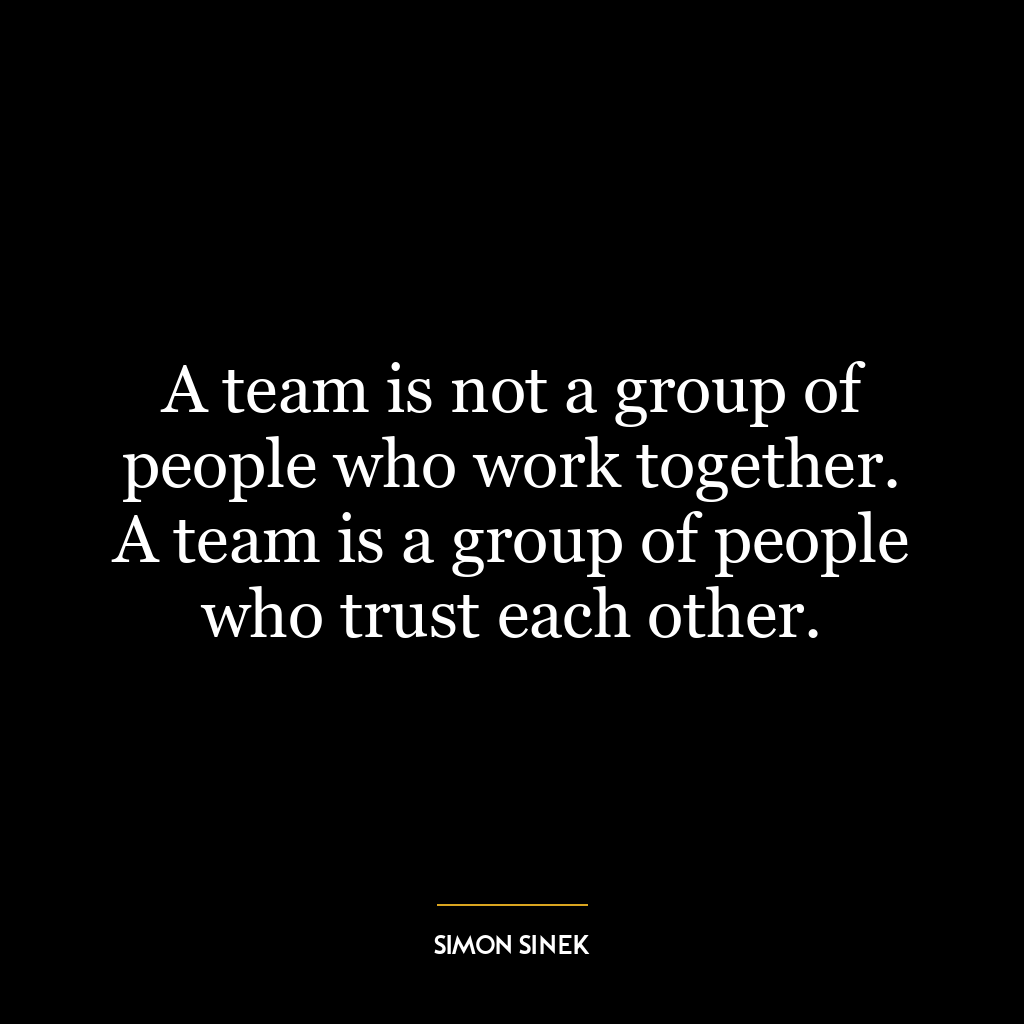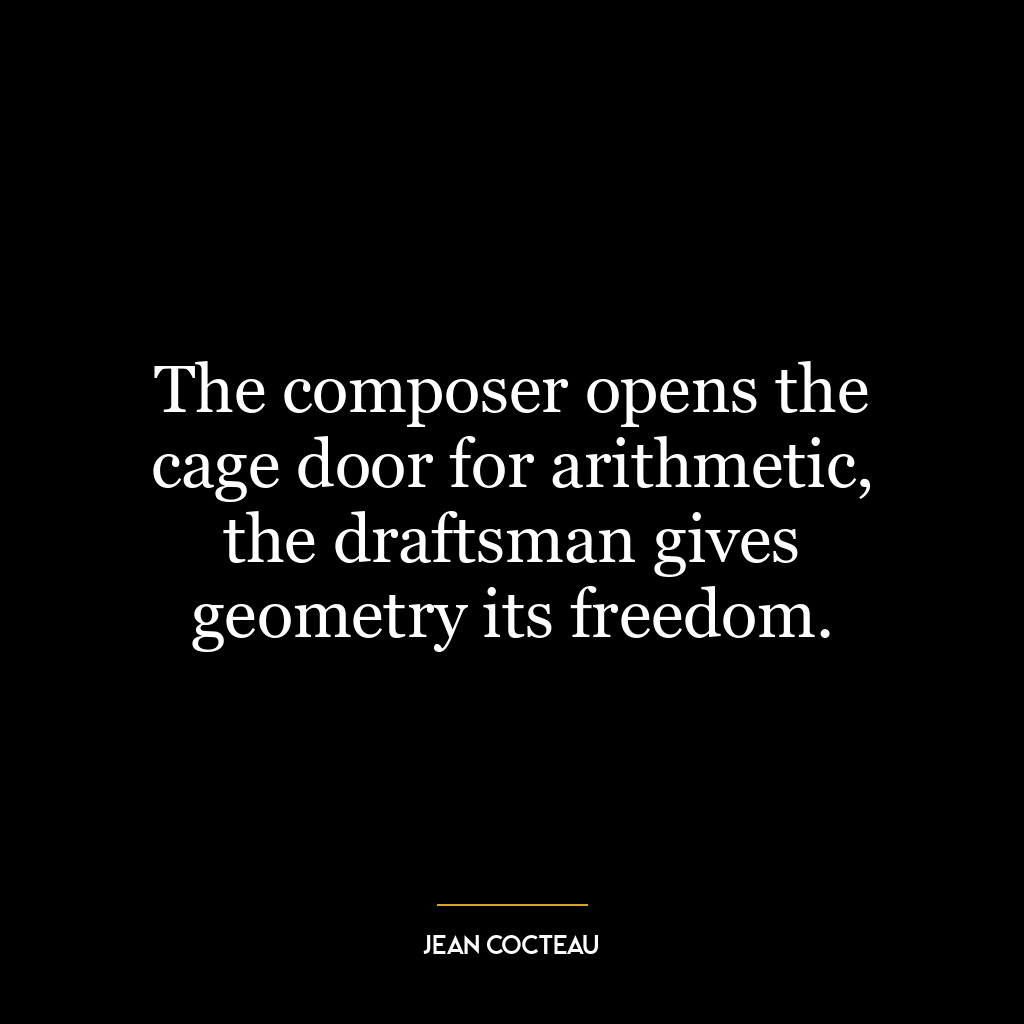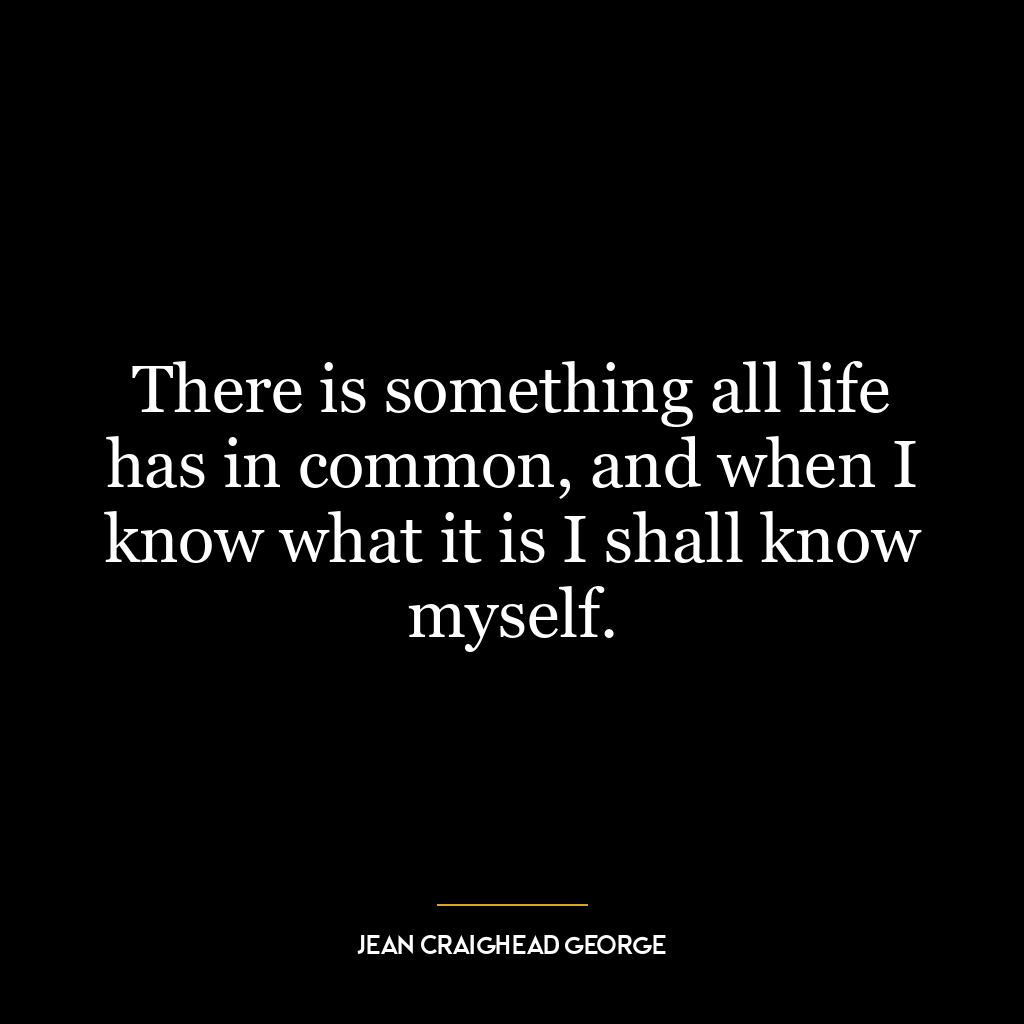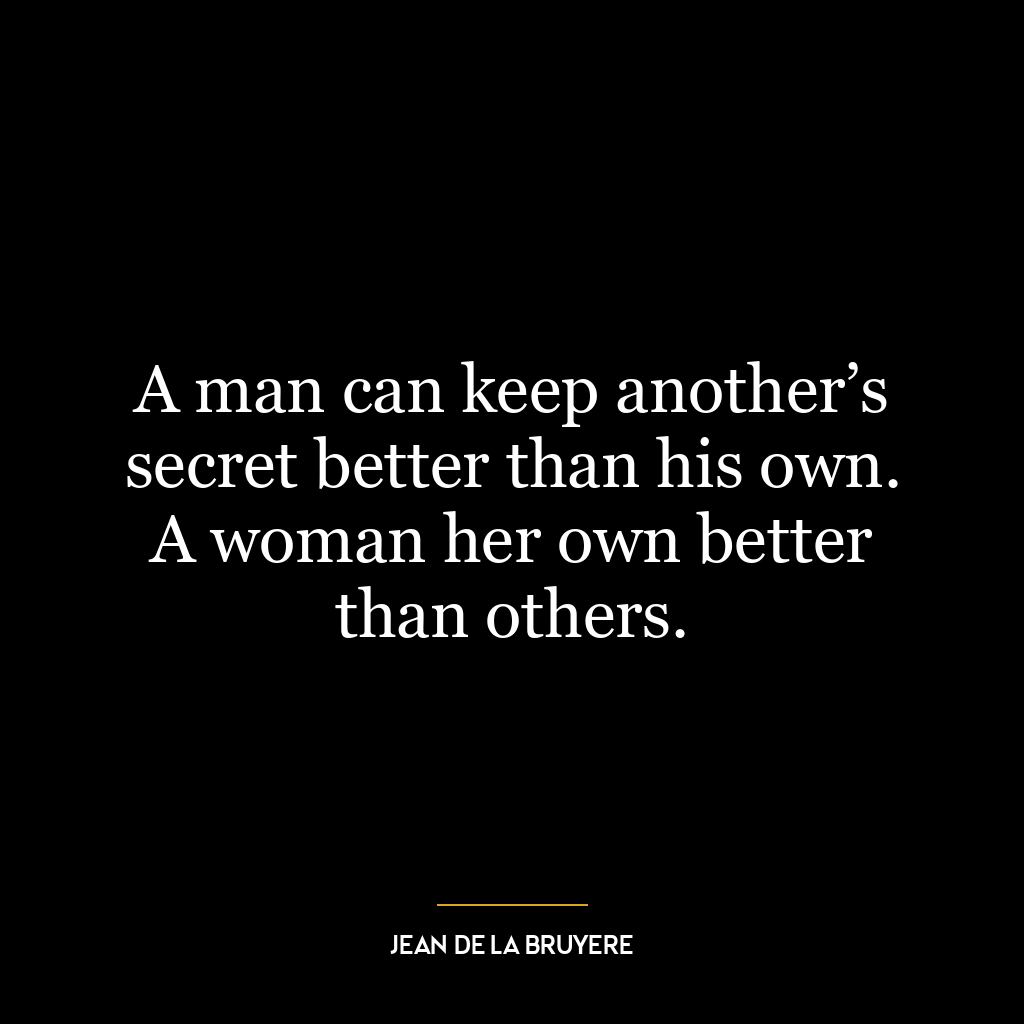A team is not a group of people who work together. A team is a group of people who trust each other.
This quote emphasizes the distinction between a mere group of people working together and a team. It suggests that the essence of a team lies not simply in collaboration, but in the mutual trust among its members.
When people work together, it doesn’t necessarily mean they’re a team. They could be just individuals sharing the same space, working on the same project, but not really connecting on a deeper level. They might be focused on their individual tasks, with minimal interaction or understanding of each other’s roles, strengths, or weaknesses.
However, when people trust each other, they become a team. Trust facilitates open communication, understanding, and mutual respect. It enables individuals to rely on each other, to delegate tasks confidently, and to work towards a common goal without fear or hesitation. Trust transforms a group of individuals into a cohesive, effective team.
In today’s world, this concept is especially relevant. With the rise of remote work and virtual teams, physical proximity and face-to-face interactions are no longer the glue that holds teams together. Instead, trust has become even more critical. Without trust, team members may feel isolated, communication may break down, and productivity may suffer.
In terms of personal development, understanding this concept can help individuals become better team players. By focusing on building trust—through reliability, transparency, empathy, and mutual respect—individuals can contribute to creating a stronger, more effective team. This, in turn, can lead to personal growth, as being part of a successful team can boost confidence, improve skills, and open up new opportunities.
Moreover, this idea can also be applied outside of the workplace, in any situation where people come together to achieve a common goal. Whether it’s a sports team, a volunteer group, or a family, trust is the foundation upon which successful teams are built.








